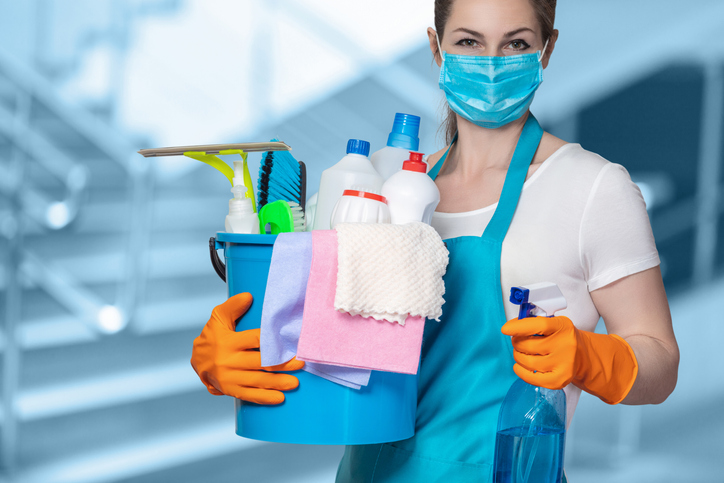After COVID-19 has subsided, the housekeeping department will be front and center of the new normal hotel experience. Anxious guests will seek out those properties that can give them peace of mind by guaranteeing their safety through heightened cleanliness procedures, and at the same time there may new regulations coming to mandate stricter sanitization protocols. All this has a cost, though.
Last year and long before the possibility of a pandemic entered our collective consciousness, the idea of housekeeping opt-out became a hotly debated subject for hotel operations with the dividing line coming down to the protection of brand standards versus cutting costs.
On the one hand, a freshly cleaned guestroom each and every day is a core service for traditional hotels, and a strong motivator for customers, particularly at the luxury end where housekeeping becomes a product differentiator in its own right. What room attendants do is better than what travelers get at their homes and no doubt guests appreciate this service as part of a wholly satisfying experience. Indeed, old school hoteliers would argue that a hotel isn’t a hotel without daily housekeeping.
Yet on the other hand, many guests don’t like to have anyone enter their rooms during their stays. The reasons for this vary. Some in this latter camp are short-stay businesspersons who rarely use the room and thus see no need for this service. Others are perhaps influenced by home sharing accommodations that do not regularly utilize daily cleaning.
I have been and remain a staunch proponent of the former mentality in that housekeeping is now more than ever a critical operation to help draw in guests. However, I can nevertheless see a situation where housekeeping opt-out becomes increasingly frequent at the economy and midscale end, both as a method to cut costs and to meet a growing demand for ‘contactless travel’.
Breaking this down a bit further, it’s easy to see how new guestroom cleaning SOP requirements designed to prevent the transmission of diseases can mushroom into hemorrhaging labor costs. At the low end where customers are far more price sensitive, not offering daily housekeeping or giving the option for an opt-out may be the only way to maintain a competitive nightly rate versus alternate accommodation providers.
Secondly, there’s that traveler anxiety. In what has been labeled as ‘post-coronavirus stress disorder’, guests may be exceedingly fearful of having unfamiliar persons in their rooms, so much so that they will demand housekeeping opt-out as a way to minimize human interactions. For these individuals, the lack of daily cleaning service is less a matter of saving a few bucks and more about safety.
Much like it was before the coronavirus, the decision as to whether to offer opt-out or not must be made on a brand-by-brand basis as each decides what it means to guests in the new normal. Daily cleaning may be far more central to the hotel experience for a luxury provider than for an economy or even an upscale, urban, business-centric one.
Given the emerging trends, the ability to opt-out may be in far higher demand than previous years, thus making it something worth considering in the coming months. And like before, you can aim to capture as much revenue in-house by offering opt-out as a credit for other services like F&B, spa or parking.
To conclude, let me give you one more hypothetical scenario to show you just how far this anxiety can change operations. Suppose instead of arriving to a fully done up guestroom as is standard for hospitality nowadays, the space is instead left bare, with all the sheets and towels necessary for however many nights you booked stacked inside of sterilized containers just outside the door. It’s then to up to you to make your own bed and get the bathroom to your liking.
Crazy? No question. Hospitality? Not at all in my opinion. But with the heightened nervousness surrounding travel in 2020, extreme measures such as this may be taken by some properties or home sharing operators in order to give guests peace of mind via a clear display that no one has entered the room recently. And, of course, a reduction in staff contact like this also comes with a reduction in costs.
All told, opt-out is still very much on the table for properties that are struggling to keep either ADR in line with the local market average or profits steady given all the new and costly pressures on the housekeeping department. Whatever route you take, just be sure to properly assess beforehand whether any cuts you make are not also cutting away an integral part of the hotel experience.
